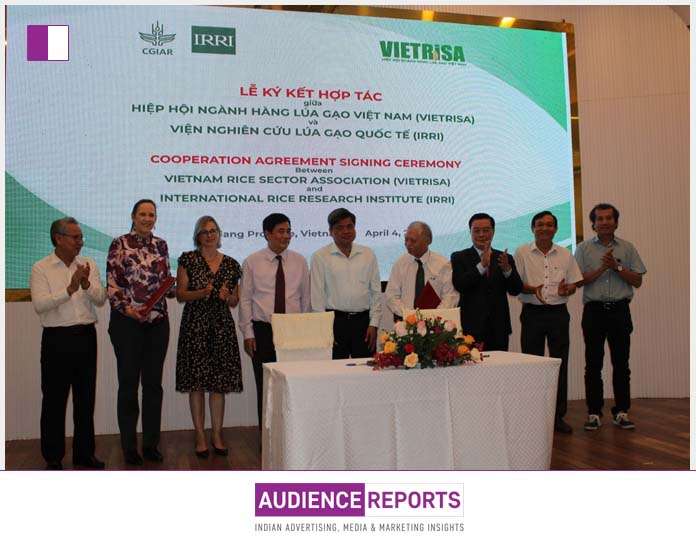International Rice Research Institute (IRRI) and the Department of Crop Production-Ministry of Agriculture and Rural Development (MARD) of Vietnam have taken a significant step forward in advancing sustainable agriculture with the launch of co-developed Technical Guidelines and Manual for High-Quality and Low-Emission Rice Production in the Mekong Delta. This collaborative effort marks a pivotal moment in the pursuit of environmentally-friendly rice cultivation practices and underscores IRRI’s unwavering commitment to research excellence and agricultural innovation.
The Technical Guidelines and Manual serve as essential resources for the implementation of the “Sustainable development of one million hectares of high-quality and low-emission rice associated with green growth in the Mekong River Delta by 2023” Program. Covering a comprehensive range of topics, including farming techniques, harvest management, post-harvest handling, straw management, and the integration of digital technology in agriculture, these guidelines provide invaluable insights and best practices for rice producers in the region.
At the heart of IRRI’s mission is the relentless pursuit of solutions to the most pressing challenges facing rice farmers worldwide. By collaborating with local partners like the Department of Crop Production-Ministry of Agriculture and Rural Development of Vietnam, IRRI is able to leverage its expertise and resources to develop tailored solutions that address the unique needs and circumstances of rice-growing communities.
The launch event also marked the signing of cooperation agreements between IRRI and the Vietnam Rice Sector Association and Taiwan International Cooperation and Development Fund, further strengthening partnerships and fostering collaboration in the pursuit of sustainable agriculture. These agreements underscore IRRI’s commitment to building bridges between research institutions, government agencies, and industry stakeholders to drive positive change in the agricultural sector.
In recent years, the Mekong Delta region has faced numerous challenges, including declining soil fertility, water scarcity, and the adverse impacts of climate change. In response, IRRI has been at the forefront of efforts to develop and promote sustainable rice production practices that not only enhance productivity and profitability but also minimize environmental impact and promote resilience to climate change.
The Technical Guidelines and Manual for High-Quality and Low-Emission Rice Production represent a significant milestone in these efforts, providing rice farmers with practical tools and knowledge to adopt more sustainable and climate-smart agricultural practices. By promoting the adoption of practices such as conservation agriculture, integrated pest management, and the use of climate-resilient rice varieties, IRRI is helping to build a more sustainable and resilient rice sector in the Mekong Delta and beyond.
As the global population continues to grow, the demand for rice is expected to increase significantly in the coming decades. Meeting this demand in a sustainable and environmentally responsible manner is a formidable challenge, but one that IRRI is uniquely positioned to address. By pioneering research and innovation in rice production, IRRI is playing a crucial role in ensuring food security, alleviating poverty, and promoting sustainable development in rice-growing regions around the world.
The launch of the Technical Guidelines and Manual for High-Quality and Low-Emission Rice Production is a testament to IRRI’s ongoing commitment to research excellence, innovation, and partnership. By working together with local stakeholders, IRRI is helping to build a brighter future for rice farmers, their communities, and the planet as a whole. As we look ahead, IRRI remains dedicated to pushing the boundaries of agricultural research and finding new ways to create a more sustainable and resilient food system for generations to come.






































